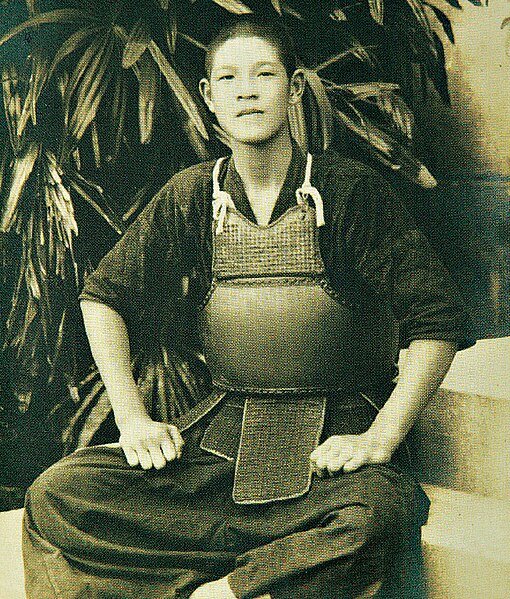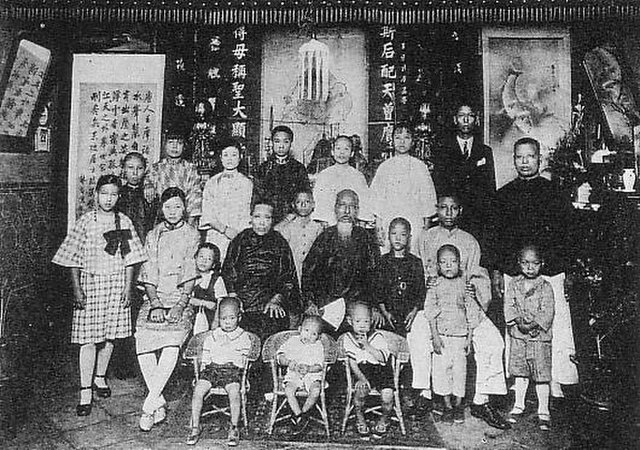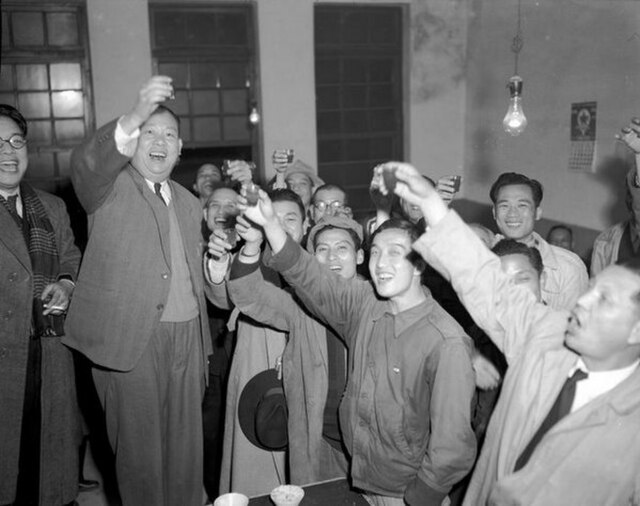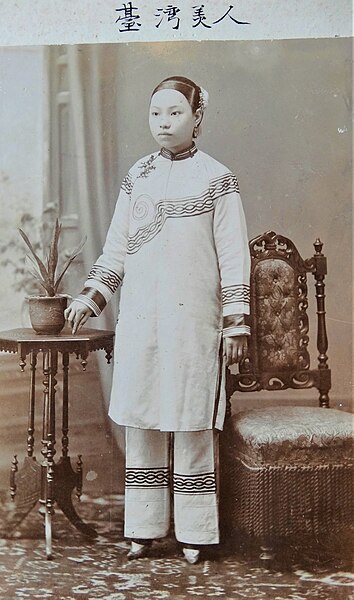Lee Teng-hui was a Taiwanese statesman and agriculturist who served as the 4th president of the Republic of China (Taiwan) under the 1947 Constitution and chairman of the Kuomintang (KMT) from 1988 to 2000. He was the first president to be born in Taiwan, the last to be indirectly elected and the first to be directly elected. During his presidency, Lee oversaw the end of martial law and the full democratization of the ROC, advocated the Taiwanese localization movement, and led an ambitious foreign policy agenda to gain allies around the world. Nicknamed "Mr. Democracy", Lee was credited as the president who completed Taiwan's democratic transition.
Lee Teng-hui, junior high school student days wearing kendo armor
Lee Teng-hui (right) and his elder brother, Lee Teng-chin (left)
Lee visiting an orphanage in 2013
Lee meeting Taiwanese President Tsai Ing-wen in 2016
The term "Taiwanese people" has various interpretations. It may generally be considered the people living on the island of Taiwan who share a common culture, ancestry and speak Mandarin, Hokkien, Hakka, or indigenous Taiwanese languages as a mother tongue. Taiwanese people may also refer to the indigenous peoples of the areas under the control of the Government of the Republic of China since 1945, including Kinmen and Matsu Islands that collectively form its streamlined Fujian Province. However, the inhabitants of Kinmen and the Matsu Islands themselves may not consider the "Taiwanese" label to be accurate as they are a part of Fujian and not Taiwan. They have a distinctive identity from that of the Taiwanese; viewing themselves as Kinmenese or Matsunese, respectively, or as simply Chinese.
Taiwanese in the Japanese colonial era
Non-Kuomintang politician Wu San-lien (2L) celebrated his landslide victory (65.5%) in the first-time Taipei city mayoral election in January 1951 with his supporters. Taipei has been the capital of Taiwan since December 1949.
"Beauty of Taiwan" per caption, circa 1900
A group of Taiwanese indigenous children








